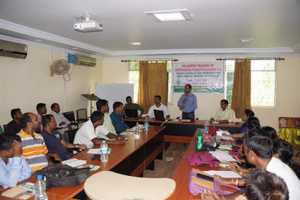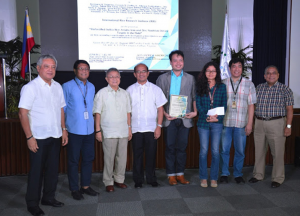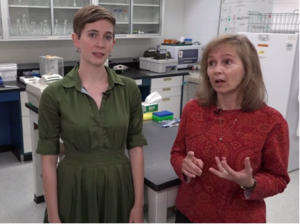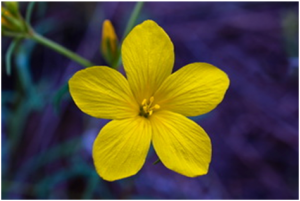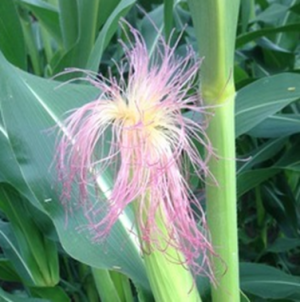Uber disrupted taxis; Tinder disrupted dating. It’s about time we disrupted food. Because something clearly isn’t working. If a fridge can tell me exactly when a stick of celery is about to reach its expiry date, why is agriculture – something we’ve been doing for 10,000 years – still so imprecise? Why do millions of farmers still look at the sky and pray for rain?
WHO today prequalified the first generic version of sofosbuvir, a critical medicine for the treatment of hepatitis C. The development could expand access to treatment by increasing the number of quality-assured generic medicines on the market. Sofosbuvir, 400 mg tablet, is manufactured by Mylan Laboratories Ltd., India.
To further disseminate information and technologies on rice production across Odisha, India, season-long training sessions on using a mat-type nursery and mechanical transplanting and other aspects of cultivation have been under way since 14 July. The first session focused on raising healthy rice seedlings and preparing a mat nursery.
IRRI's Genetic Transformation Laboratory, headed by Dr. Inez Slamet-Loedin, was recognized at the Regional Science and Technology Week (RSTW) for its work on iron- and zinc-enriched indica rice. The study is regarded as a breakthrough in the battle against micronutrient deficiency.
GMOs are featured in the latest episode of Science In Real Life (IRL) hosted by Molly Edwards, a PhD student at Harvard University studying floral evolution and development.
Molly visited a laboratory at Boyce Thompson Institute and showed how GMOs are developed in the lab. She interviewed Dr. Joyce Van Eck,
Genetically engineered salmon has finally reached the dinner table after over 25 years of long wait since its first application for Food and Drugs Administration approval. According to its developer, AquaBounty Technologies, they have sold about 4.5 tons of GE salmon in Canada as of August 4, 2017.
The CRISPR system has become a widely used technique to perform targeted mutagenesis in a variety of species. However, few studies have modified metabolic pathways in plants using the CRISPR system.
 New research findings support the commercial cultivation of genetically modified (GM) Camelina sativa, one of Europe's oldest oil seed crops. Scientists have reproduced results showing that the transgenic camelina plants can grow in the field. They have matched the seeds' biosynthetic products more closely to those of their marine counterparts, and have identified the potential for even greater oil storage in the seeds.
New research findings support the commercial cultivation of genetically modified (GM) Camelina sativa, one of Europe's oldest oil seed crops. Scientists have reproduced results showing that the transgenic camelina plants can grow in the field. They have matched the seeds' biosynthetic products more closely to those of their marine counterparts, and have identified the potential for even greater oil storage in the seeds.
On May 11, 2015, the Turkish Poultry Meat Producers and Breeders Association (BesdBir) submitted dossiers to the Biosafety Board to request approval for 37 traits for feed use: 9 soybean, 15 corn, 4 canola, and 10 cotton. Five traits and their products were approved on July 16, 2015 for feed use, including 3 corn (MIR604, MON 863, T25) and 2 soybeans (MON87701 and MON87701xMON89788). Eight events (6 corn (MON863 x NK603, MON863 x MON810, MON89034 xMON88017, MIR604 xGA21, Bt11xMIR604, MIR162) and 2 soybean (A5547-127, 356043) events) were approved on November 5, 2015 and additional four events given above were approved on August 2, 2017.
An international team led by researchers from Cornell University in New York and the Max Planck Institute for Developmental Biology in Tuebingen, Germany reveals that indigenous people in the American southwest started adapting maize to temperate growing seasons 4,000 years ago and refined it over in the next 2,000 years. In their paper published in Science, the group revealed the genetic changes that allowed the plant to live in harsher environments.


 Curently online :
Curently online :
 Total visitors :
Total visitors :


